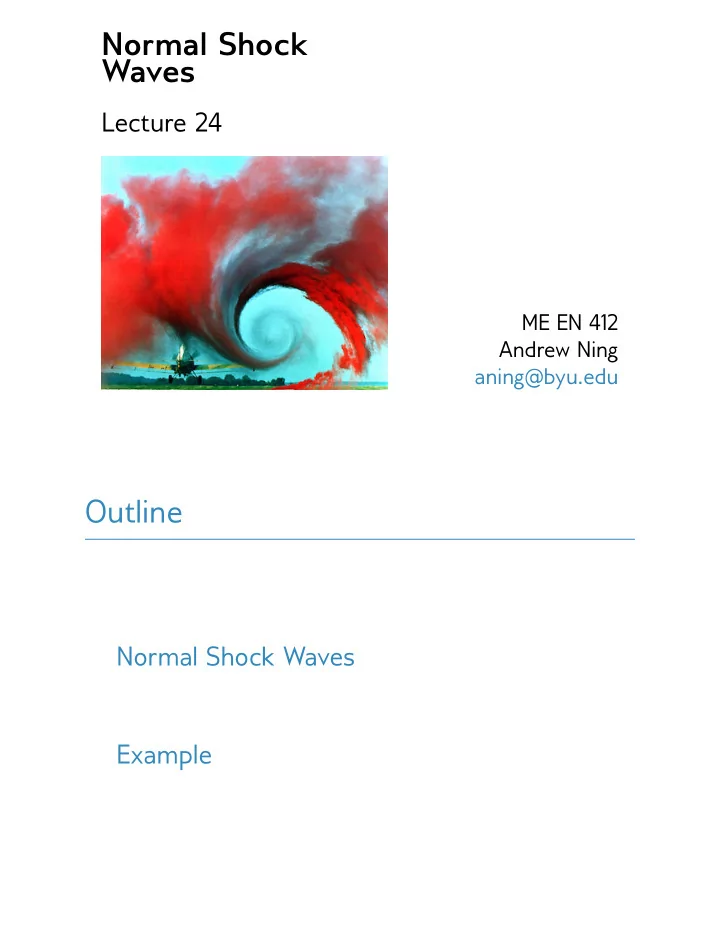

Normal Shock Waves Lecture 24 ME EN 412 Andrew Ning aning@byu.edu Outline Normal Shock Waves Example
Normal Shock Waves Normal Shock Waves 1 2
Prandtl relation u 1 u 2 = a ∗ 2 = 2 + ( γ − 1) M 2 u 2 = ρ 1 1 ( γ + 1) M 2 u 1 ρ 2 1 2 γ P 2 γ + 1( M 2 = 1 + 1 − 1) P 1 T 2 = h 2 = P 2 ρ 1 T 1 h 1 P 1 ρ 2
10 8 P 2 /P 1 6 ρ 2 /ρ 1 4 T 2 /T 1 2 0 1.0 1.5 2.0 2.5 3.0 3.5 4.0 4.5 5.0 M 1 � 2 + ( γ − 1) M 2 1 M 2 = 2 γM 2 1 − ( γ − 1) 1.0 0.8 0.6 M 2 0.4 0.2 0.0 0 1 2 3 4 5 M 1
Total temperature is constant across a shock wave T 01 = T 02 Total pressure decreases. 1 γ ( γ + 1) M 2 � γ + 1 � γ − 1 � � P 02 γ − 1 1 = 2 γM 2 2 + ( γ − 1) M 2 1 − ( γ − 1) P 01 1 1.0 0.8 0.6 P 0 2 /P 0 1 0.4 0.2 0.0 1.0 1.5 2.0 2.5 3.0 3.5 4.0 4.5 5.0 M 1
For each of these quantities, do they increase, decrease, or stay the same after passing through a normal shock wave? • Mach number • velocity • pressure • stagnation pressure • temperature • stagnation temperature • density • entropy 1 2 3 4 An Album of Fluid Motion, Van Dyke
Example The SR-71 aircraft was design to fly at M ∞ = 3 . 2 at 85,000 feet. Assume there was a bow shock in front of the aircraft 1 , what would the stagnation temperature and pressure be at the nose. 1 the aircraft is designed with a pointed nose to create oblique shocks, but we haven’t covered oblique shocks yet, instead think of a blunt nosed missile
Recommend
More recommend